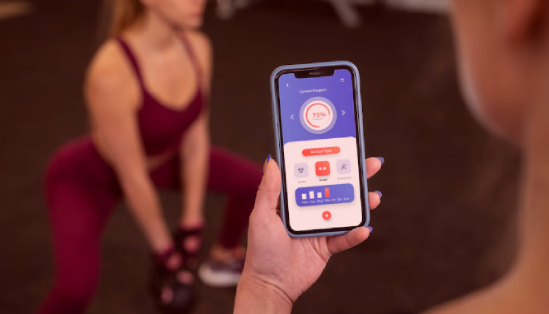In the ever-evolving landscape of healthcare, mobile applications have emerged as pivotal tools, revolutionizing patient care, enhancing operational efficiency, and fostering innovation. The integration of mobile application development services into healthcare systems is not merely a trend but a strategic imperative that drives growth and transformation. This blog delves into the multifaceted role of mobile app development in healthcare, exploring its impact, benefits, and the future trajectory of this dynamic intersection.
The Rise of Mobile Health Applications
The proliferation of smartphones and the increasing reliance on digital solutions have paved the way for mobile health applications to become integral components of modern healthcare. These applications encompass a broad spectrum of functionalities, including appointment scheduling, telemedicine, medication reminders, fitness tracking, and access to medical records. By providing patients and healthcare providers with real-time access to critical information, mobile apps facilitate timely interventions, personalized care, and improved health outcomes.
Enhancing Patient Engagement and Access
Mobile health applications empower patients by granting them direct access to their health information and enabling them to actively participate in their care journey. Features such as appointment reminders, medication tracking, and symptom monitoring encourage patients to take ownership of their health, leading to better adherence to treatment plans and proactive management of chronic conditions.
Moreover, telemedicine functionalities within mobile apps bridge geographical barriers, allowing patients in remote areas to consult with healthcare professionals without the need for travel. This not only expands access to care but also reduces the strain on healthcare facilities, making healthcare delivery more efficient and inclusive.
Streamlining Healthcare Operations
Beyond patient engagement, mobile applications play a crucial role in optimizing healthcare operations. By digitizing administrative tasks such as patient registration, billing, and inventory management, healthcare providers can reduce paperwork, minimize errors, and enhance workflow efficiency. This streamlining of operations leads to cost savings, reduced administrative burdens, and the ability to allocate resources more effectively.
Furthermore, mobile apps facilitate seamless communication among healthcare teams, enabling real-time sharing of patient information, test results, and treatment plans. This collaborative approach enhances coordination, reduces the risk of miscommunication, and ensures that patients receive comprehensive and cohesive care.
Driving Innovation Through Technology
The integration of advanced technologies into mobile health applications is driving innovation within the healthcare sector. Artificial intelligence (AI) and machine learning algorithms analyze vast amounts of health data to provide predictive insights, personalized treatment recommendations, and early detection of potential health issues. For instance, AI-powered diagnostic tools can assist in identifying patterns in medical images, aiding radiologists in detecting anomalies with greater accuracy.
Additionally, the incorporation of augmented reality (AR) into mobile health apps is transforming medical education and training. AR overlays digital information onto the physical world, allowing medical students and professionals to visualize complex anatomical structures and practice procedures in a simulated environment. This immersive learning experience enhances understanding and proficiency, contributing to the development of skilled healthcare providers.
The Importance of Choosing the Right Development Partner
Embarking on the journey of mobile app development for healthcare requires careful consideration and expertise. Selecting the right development partner is paramount to ensure the creation of secure, user-friendly, and compliant applications. When evaluating potential partners, it is essential to assess their experience in healthcare app development, understanding of regulatory requirements such as HIPAA, and proficiency in integrating with existing healthcare systems.
For insights into the significance of partnering with a professional development company, consider exploring this article on hiring a mobile app development company.
Future Trends in Mobile Health Applications
The future of mobile health applications is poised for continued growth and innovation. Key trends to watch include:
-
Integration with Wearable Devices: Mobile apps will increasingly sync with wearable devices such as smartwatches and fitness trackers to monitor real-time health metrics like heart rate, sleep patterns, and physical activity.
-
Blockchain for Data Security: Blockchain technology will enhance the security and privacy of patient data, providing immutable records and decentralized access controls.
-
Voice-Activated Interfaces: Voice recognition technology will enable hands-free interaction with mobile health apps, improving accessibility for users with disabilities and those in hands-busy situations.
-
Personalized Health Insights: Leveraging big data analytics, mobile apps will offer tailored health recommendations based on individual profiles, lifestyle choices, and genetic information.
Conclusion
Mobile application development services are not just enhancing healthcare delivery; they are fundamentally transforming the way care is provided and experienced. From improving patient engagement and streamlining operations to driving technological innovation, mobile health apps are at the forefront of healthcare evolution. As the industry continues to embrace digital solutions, the collaboration between healthcare providers and mobile app developers will be crucial in shaping a future where quality care is accessible, efficient, and patient-centered.
For those interested in exploring innovative ideas in the fitness app domain, this article on best fitness app ideas offers valuable insights into emerging trends and concepts.
Additionally, understanding the role of augmented reality in healthcare can provide a glimpse into the future of medical training and patient care. Learn more about this transformative technology in the article on augmented reality in healthcare.
Lastly, for businesses considering cross-platform development, it’s essential to understand the cost implications. This article on how much does React Native app development cost provides a comprehensive overview of factors influencing development costs and potential savings.

